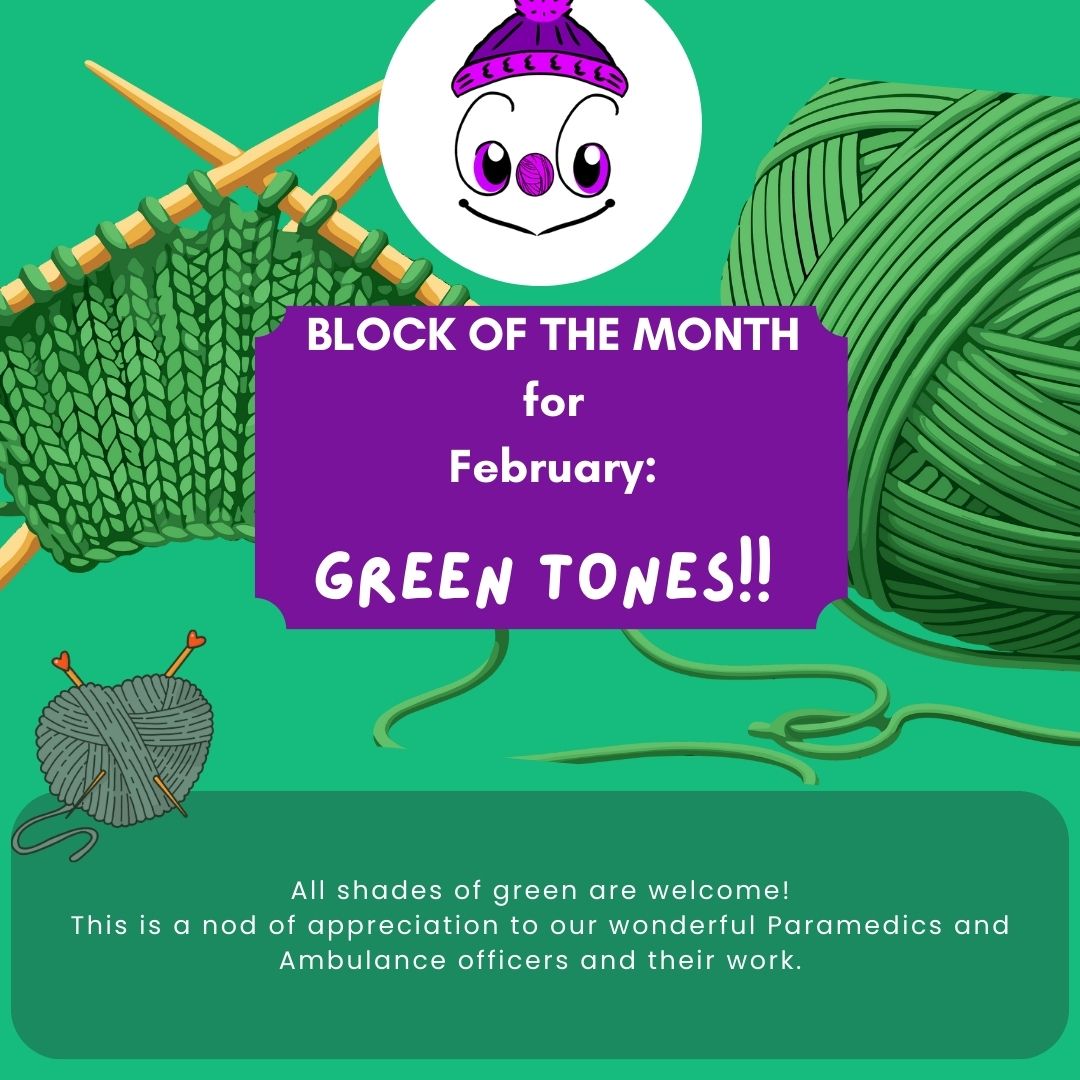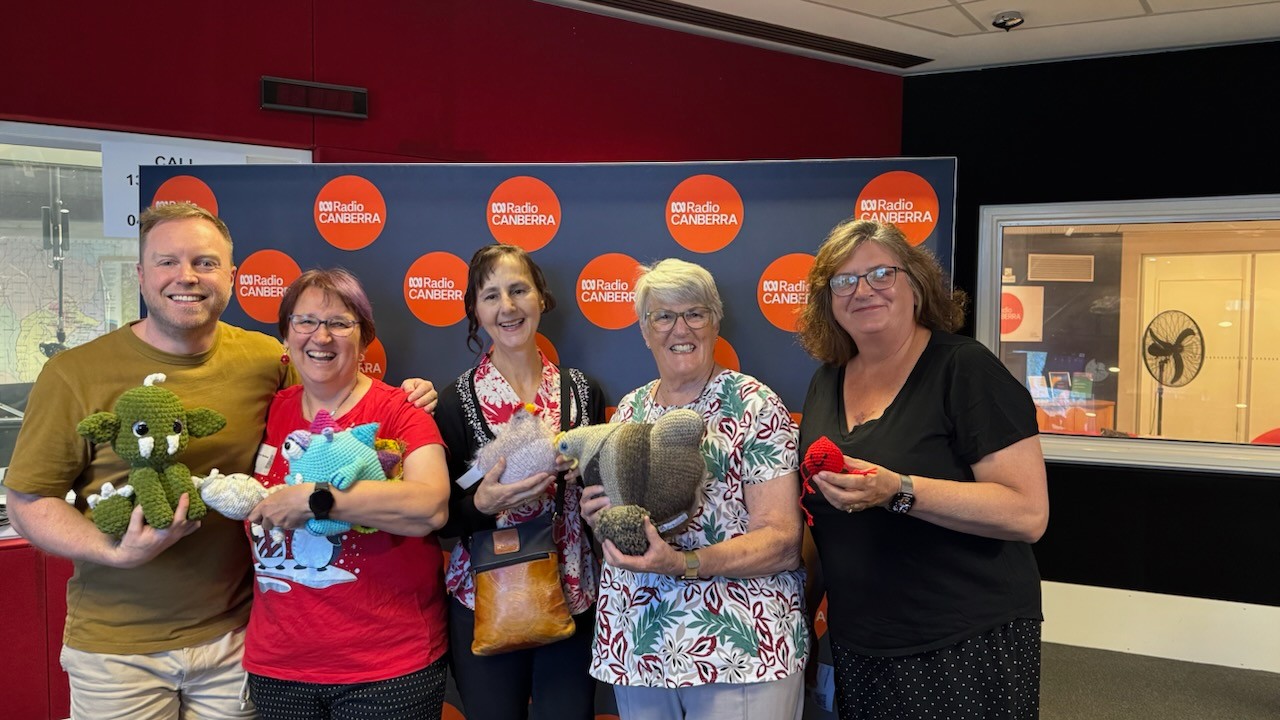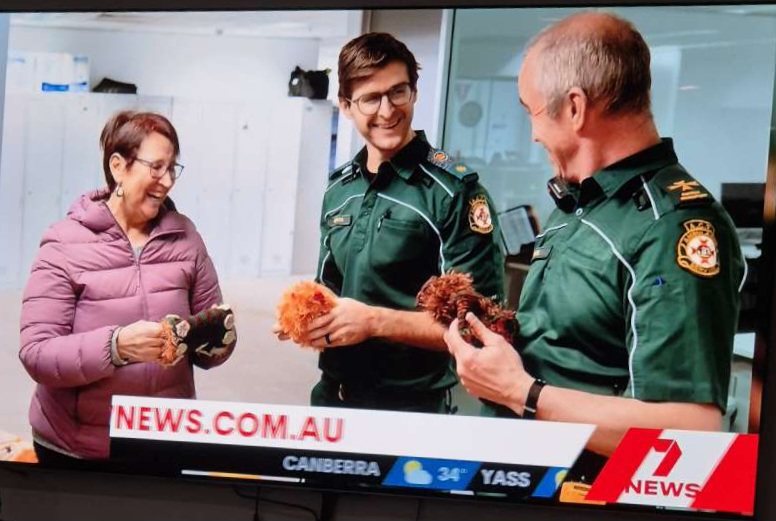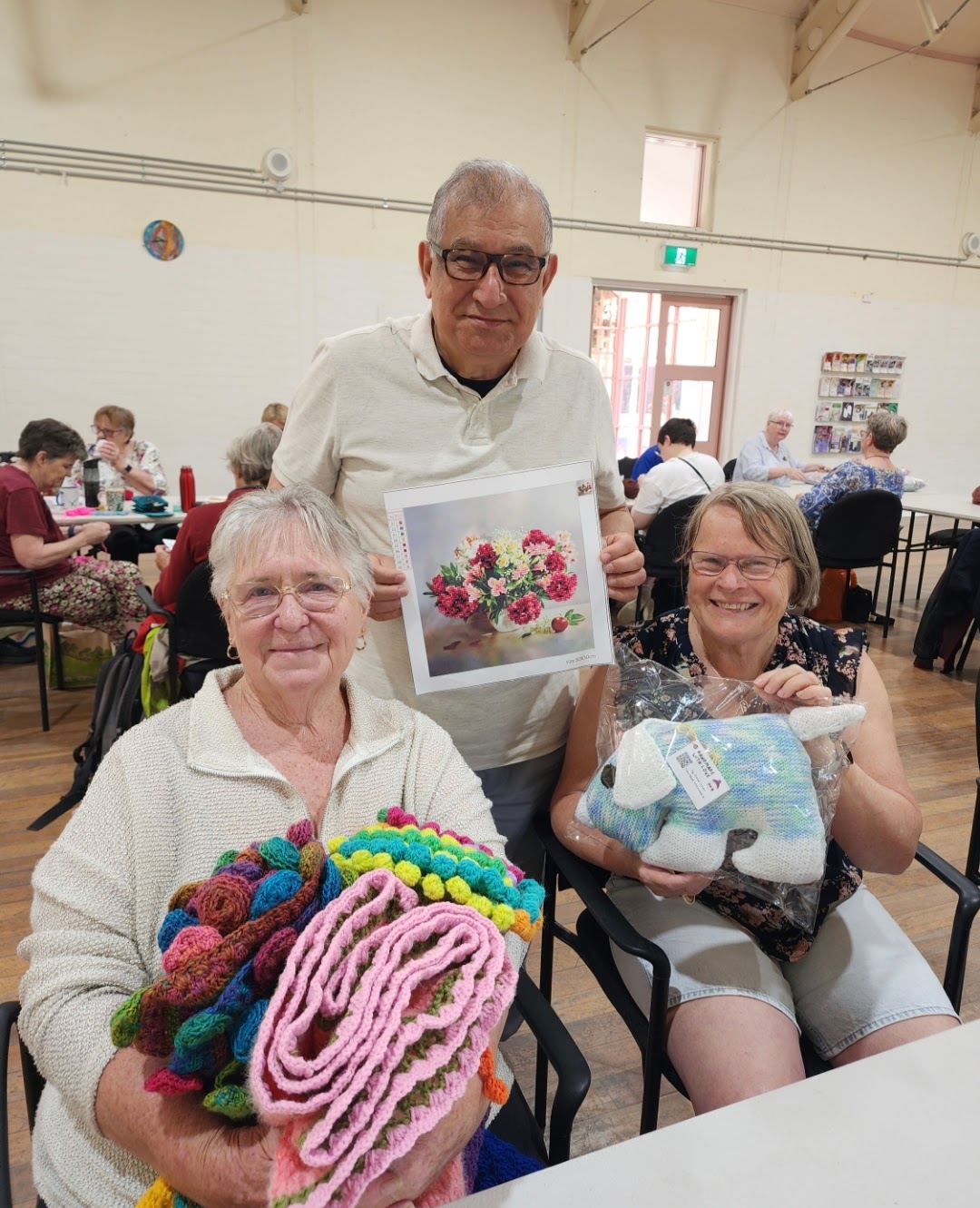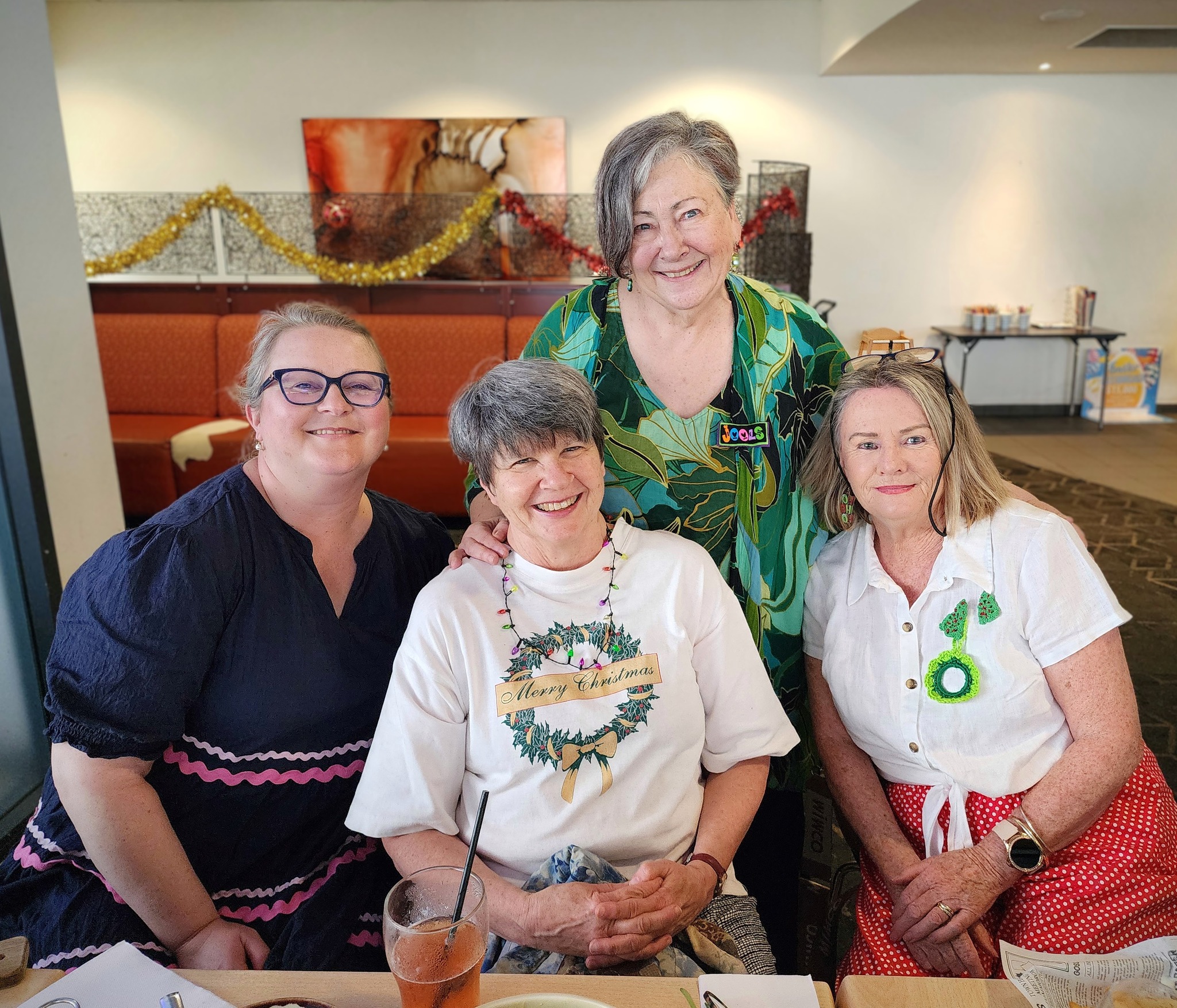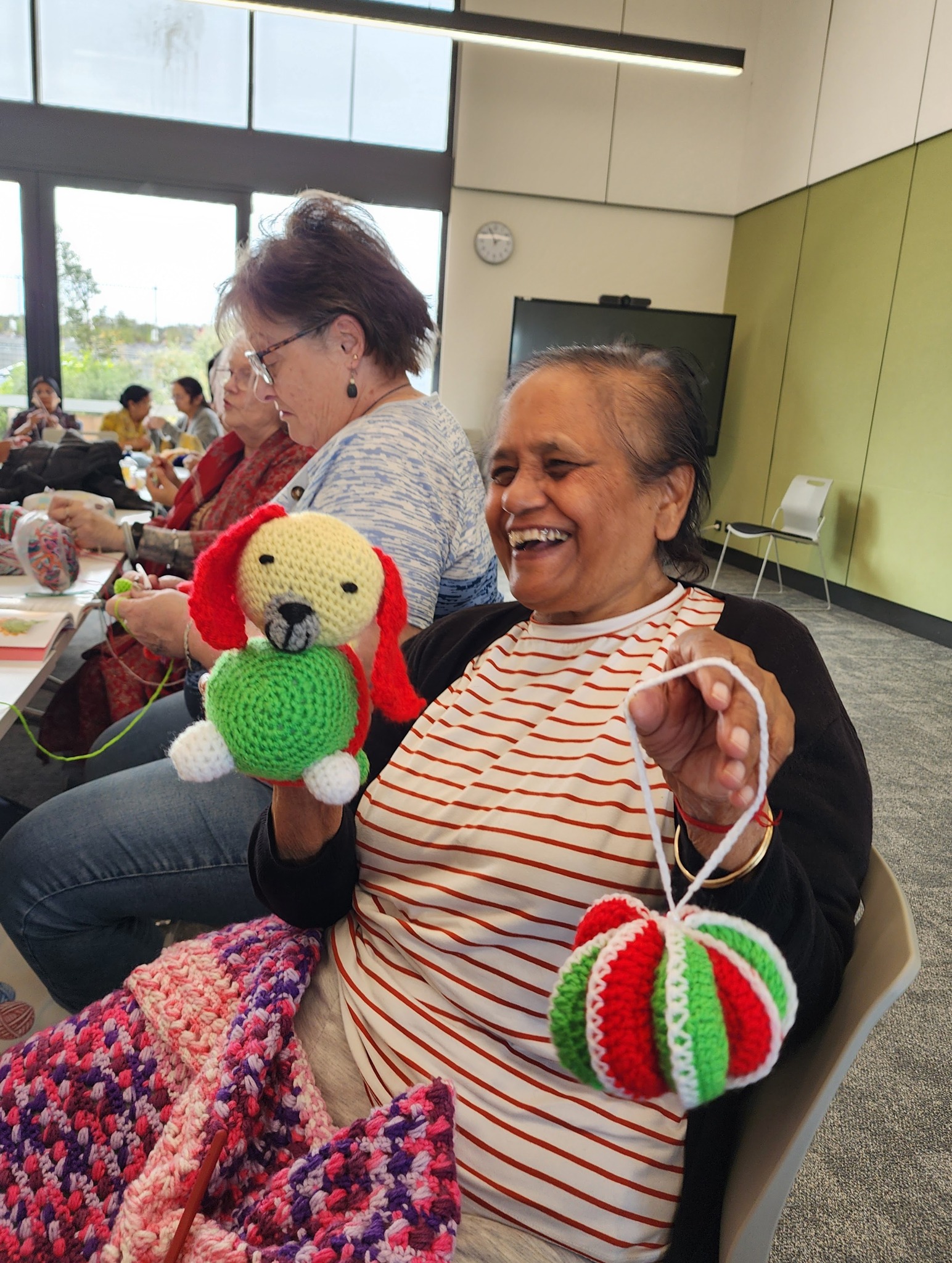Ian Bushnell – 5 December 2019 (Riot ACT)
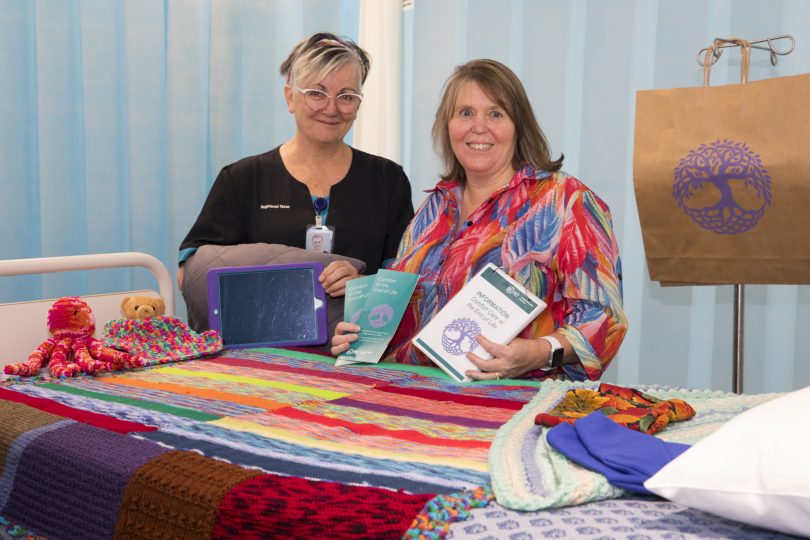
Watching a loved one die can be the worst day of anyone’s life, but it need not be without its comforts or memories that can help family and friends in their bereavement.
That’s the basis of a new care program being rolled out across Canberra Hospital that offers simple but effective items to make a difficult and confronting time if not less painful then at least more comforting.
Senior Project Officer for Territory-wide End of Life and Palliative Care Toni Ashmore says the medical literature shows three key elements around what is known as ‘comfort care’: physical and emotional comfort, a conducive environment, and legacy or memory-making.
The Comfort at the End of Life Care package is a result of feedback from the Assembly inquiry into end of life care, already existing practices across individual hospital wards and a recent survey of staff and consumers.
The care package contains items such as candles and lamps to create a softer ambience; soft toys for children and to calm agitated family members; rugs, quilts and weighted blankets to warm and relax patients and loved ones; and memory boxes to take away precious items such as locks of hair.
Also coming is a ‘cuddle bed’, a key request from the survey, so family members and friends can hold their dying loved one.
Ms Ashmore says the items were not random but evidence-based measures with proven effectiveness for helping people deal with death – a major life event.
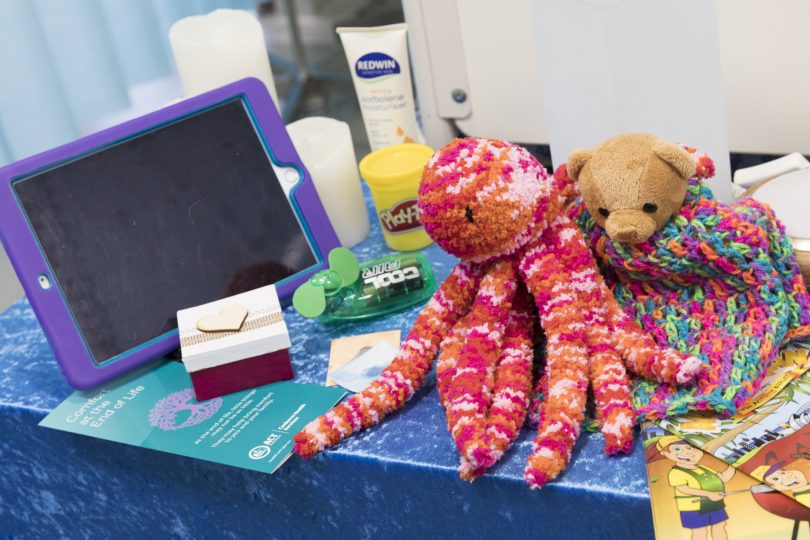
The program, funded by the Canberra Hospital Foundation, also includes a brochure that explains what can be offered but also what families can bring of their own to make the space their own, including photos, music and any other significant items, and suggestions for how to spend time at bedside.
It also outlines the social and spiritual support services available.
Ms Ashmore says there are no right or wrong ways to share time with a loved one’s final hours and staff are there to ask what people’s needs were and try to have them met.
Intensive Care Unit Registered Nurse Tess Knight says there is a sacredness about where and how people die, and a deep desire in the culture for keepsakes and mementos.
“In essence, people want to be cared for, they want to feel safe, that requires simple things like the nurses’ presence and ambience, and for families the simplicity of a warm blanket, because when you grieve you get very cold,” she says.
Ms Knight says dimming the lights or the use of deodoriser or essential oil such as lavender also help people cope with the physical effects of dying, such as the changing skin colour and smells.
The care package also includes thumb or fingerprinting, so people can take away a memory of their loved one.
Specially made carry bags with the End of Life Care tree logo are also available for family members to take their loved one’s belongings as well as the personalised knitted rugs available.
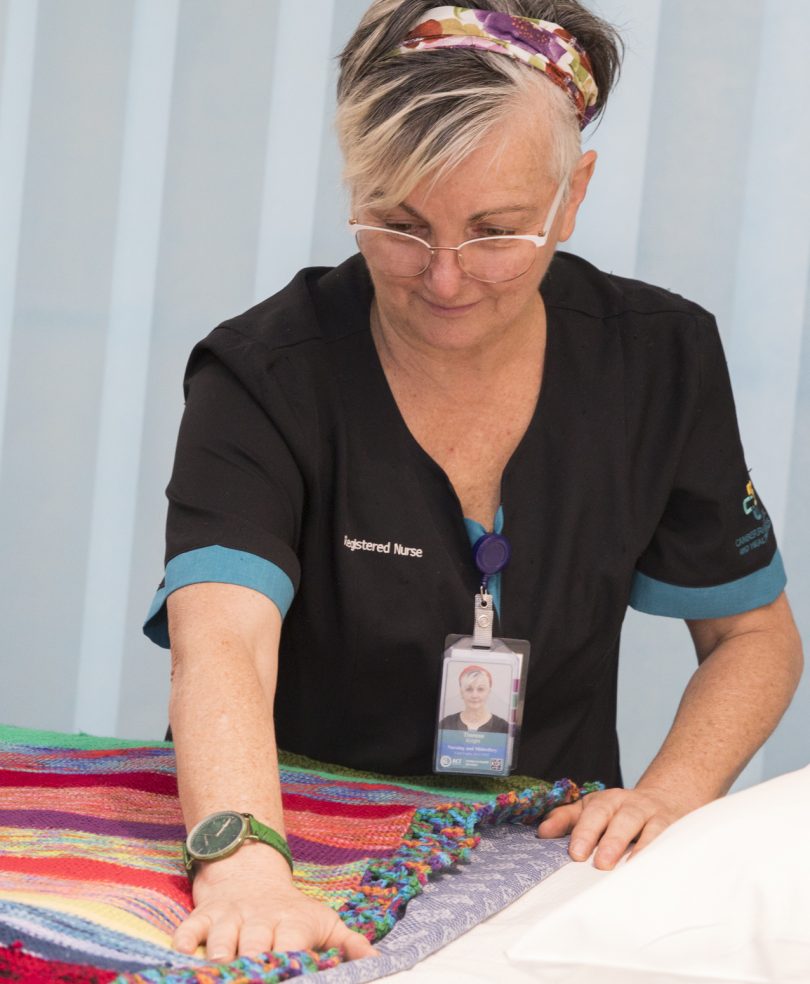
An army of volunteers provides soft knitted toys and rugs. Two adult dream quilts are being designed and created for Aboriginal and Torres Strait Islander people with a focus on connection to country and totems.
The Foundation also funds a qualified therapeutic harpist who can provide soothing music at the bedside.
iPads can connect family members no matter where they be, overcome language barriers or simply display photos.
Ms Knight says families will go back over this [end of life] moment with MRI precision, and families need to have a narrative around the dying.
“If we can fill that with as much beauty, dignity and care, and ease, it really helps them shape the story which had huge implications for how the bereavement is down the track,” she says.
Ms Knight says that for staff, being able to provide these comforts is immensely satisfying, and is a return to the core business of nursing – caring for people.
Ms Ashmore says the comfort program adheres to the palliative care gold standard of meeting the spiritual, psychological, and emotional needs of the patient and family.
She says the hospital will also be offering follow-up support to families who have lost a loved one there.
What a lovely article! We here at GOG feel incredibly privileged to be part of such an important and compassionate initiative and I would like to take this opportunity to personally thank each and every GOG member who has put time and love into each and every stitch; whether it’s a crochet, knitted or machine stitch, to create some of these beautiful comfort items. It’s lovely to see our GOG gifts so prominent in this article and in this initiative, and we look forward to continuing our support across the ACT Health services in the new year! 🙂 Well done Tess. ❤️ – Mary


